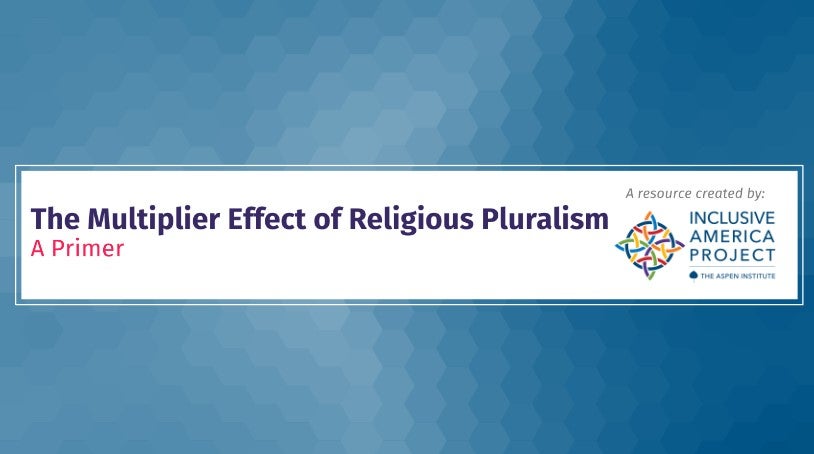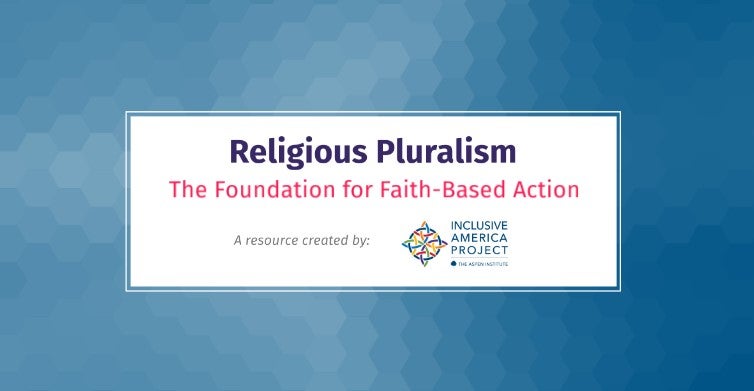Religion and Philanthropy
In 1949, when the Aspen Institute was founded, the Spanish philosopher José Ortega told a group of American business leaders and creatives that the United States had become oriented “too much toward our material comfort, to the neglect of the moral and spiritual condition of ourselves and others.” His words urged a focus on “the art of living.”
Today we find our society grappling with a similar imbalance. While a great many of us are awash in information, a sense of social disconnection has grown. For many, it’s a time of spiritual searching. The old institutions that once held us together seem to be fraying.
The question for us, and especially for those in philanthropy, is how to respond. How can we, in the words of a Harvard professor Robert Putnam, help “reweave the social fabric”?
This is the central question behind the Aspen Institute’s new Religion and Philanthropy initiative, a project that seeks to bring together senior executives from leading foundations for a series of candid, peer-led conversations. We explore how religious convictions and communities—whether for good or ill—impact civic life, social transformation, and the broader culture.
The truth is, as the saying goes, religion is “always in the room.” Faith traditions remain a powerful, and often overlooked, force for social change. Yet, many of the largest philanthropies today find themselves unmoored from these traditions or unsure of how to engage with them.
This initiative, supported by generous grants from the Henry Luce Foundation, The Fetzer Institute, and the Packard Foundation is designed to help address that. We believe that by creating a safe and generative space for philanthropic leaders, we can begin to bridge the divide between secular and religious approaches to social good. Over the course of two-day convenings, the initiative explores some of the most pressing questions of our time:
- How can we invest alongside, or even “with the grain,” of religion in society?
- What should funders know about today’s shifting religious landscape?
- How can religious communities contribute to rebuilding social trust in an age of high polarization?
Rather than relying on a series of expert-speakers, our approach is peer-led and collaborative. We are building a network where these leaders can learn from one another and from a carefully curated group of scholars and clerics. We believe that change happens not with a “lone man of history” but in and through these “dense, overlapping networks,” as UVA professor James Davison Hunter describes.
The initiative aims to:
- Foster greater collaboration between secular and religious donors. We hope to see a new openness to partnering across different worldviews to achieve shared goals.
- Inform giving in the religion sphere. By introducing philanthropic leaders to capable religious organizations, we can help them make better-informed decisions.
- Create a trusted network of peers. This ongoing community will serve as a resource for leaders to consult on complex issues, share insights, and find support in their work.
As David Gergen, a former Harvard professor and White House aide, once told a group of Faith Angle journalists, “in contentious times, introducing some calm and sobriety is its own contribution.” This initiative seeks to offer just that—a space for learning, for connection, and for a deeper understanding of how the moral and spiritual condition of our society is central to the work of human flourishing. It is, in its own way, a return to the “art of living” that Ortega spoke of so many years ago.


